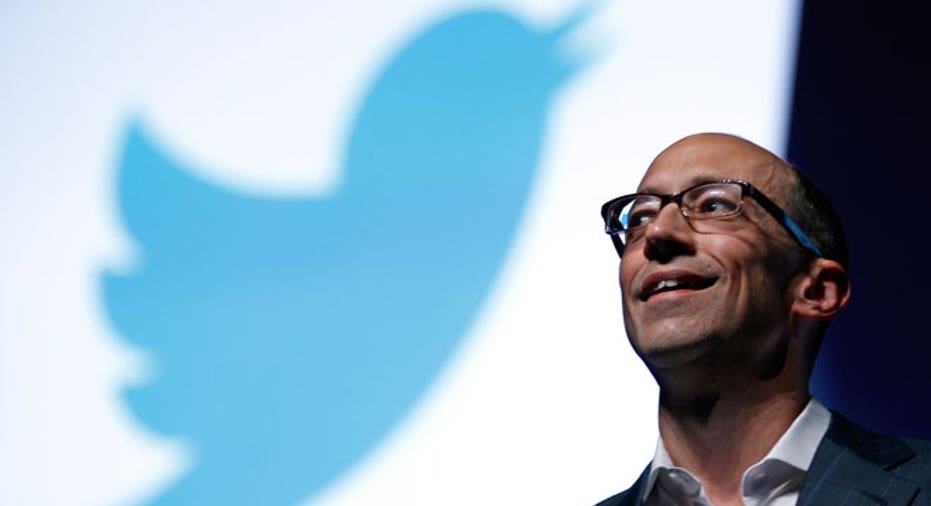What the Heck Happened at Twitter?

William of Occam was a 14th century Franciscan friar known for an eponymous problem solving principle – Occam’s razor – which essentially states that the fewer assumptions the better. There are certainly more lengthy descriptions than that but, like Occam, I like to keep it simple.
For years I’ve watched technology pundits, analysts and commentators endlessly debate every facet of a problem when the answer is staring them right in the face. Funny, but people often accuse me of stating the obvious. They have no idea how hard it is to keep it simple in an industry where everyone is hell bent on complicating everything.
Case in point: the media circus surrounding Twitter’s (NYSE:TWTR) admittedly botched CEO transition. Let me explain what I think happened. First, here’s what we know:
Dick Costolo has done an admirable job of running the social media company since 2010. In late 2013 he took the company public. That was not his best decision. It’s been a rough rollercoaster ride ever since. The main problem is user growth. It stalled, more or less, falling far short of the company’s own predictions and anything remotely resembling mainstream adoption.
Costolo has been frantically shuffling the company’s story, strategy and management team in search of the right combination that would fix Twitter’s customer engagement problem and get everyone off his back. Alas, nothing has worked and the bright lights of Wall Street are pretty harsh when things aren’t working. The former standup comic has long been on the hot seat and some predicted he wouldn’t survive the year, myself included.
On the morning of June 3rd, just hours before the company’s annual shareholder meeting, billionaire and early Twitter investor Chris Sacca let loose a friendly sounding but nevertheless scathing assessment of the company and its product in the form of an 8,500-word blog post entitled What Twitter Can Be.
That afternoon Sacca got on the tube and basically said that if Costolo’s not on board with his suggestions he believes the board of directors will act, implying that the boss would be boss no more. Then he talked about how Twitter would make a fine acquisition for Microsoft (NASDAQ:MSFT), Facebook (NASDAQ:FB) or Google.
Eight days later, Twitter announced that Costolo would step down on July 1 and co-founder Jack Dorsey will temporarily run the show while the board searches for a permanent CEO. Coincidence? Come on now, as I see it, there are no coincidences like that. Not in this business.
That’s all we know. And while the only people who know more are the board and they’re not talking, it’s really not that hard to figure out what went down.
Here’s my conclusion. Let’s not complicate things. Sacca dates back to Twitter’s early days. He was in on the first round of funding and is reportedly the company’s largest outside shareholder. And while his massive missive had an outwardly friendly tone, the underlying message had a very sharp bite. Make no mistake, it was a very big deal.
While Sacca claims to have no inside information, he stated Twitter’s problems more clearly than anyone has – as if he was articulating what was on everyone’s mind. And I seriously doubt he got to where he is without keeping his ear very close to the ground. Maybe he knew more than he let on. That I don’t know. But I do know that Costolo and the rest of the board would have had to meet and consider what he wrote ... and said.
And when they did, two paths were possible. The board could have told Costolo you have our full support, forget Sacca, go about your business and Godspeed, in which case there would have been no CEO change. Or someone – maybe it was Costolo – would have said you know he’s mostly got it right, we really do have to get this figured out, so maybe it’s time we let someone else take a stab at this. Simple as that.
There is actually one more thing I know. After a turbulent 18 months since the IPO – a year and a half of struggling to get the leadership team, the product and the story right, to no avail – had it been me in Costolo’s shoes, I would have seen Sacca’s message as the proverbial writing on the wall. I would have known it was time to step down.
That course of events would also explain the transition story that everyone knows makes no sense at all. If this was such a natural transition that had been in the works for some time – as the company said – then why not just announce Costolo’s intent to step down, that a search for a successor has begun, and everything’s hunky dory?
Simple. Sacca essentially wrote Costolo’s swan song. At that point, he was done. Again, had it been me, I would have thought, how in the world can I run this company now? Everyone internally and externally would know I’ve thrown in the towel, been undermined, or both. Regardless, it spells lame duck. End of story.
So that’s why I think Costolo is stepping down now. That’s also why Dorsey said the company would stay the course during the transition. It’s not as if they had months to come up with a new plan. They had days. Eight days, to be exact. That’s not enough time to do much of anything, except maybe decide it’s time for a change.
If that sounds obvious, then I say it’s probably what happened. Occam would be proud.



















